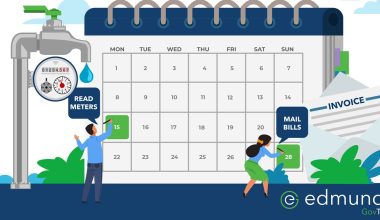Unless your utility is an anomaly, each month you have customers who, for a variety of reasons, can’t pay their bill on time.
Payment Plans
The usual scenarios for customers having difficulty paying their bill range from wanting to extend their due date a few additional days to requesting a payment plan for repaying a very large bill over time.
Let’s look at the three most common forms of payment plans utilities offer customers for additional time to pay their bills.
Extensions
Extensions are generally used to give customers a few additional days to pay after the due date. Some utilities will defer the late fee when granting an extension, but most use extensions to delay the cut-off process. Some utilities will still assess the cut-off fee (or whatever you call it), but not terminate service, while others will waive the fee provided the extension is paid on time.
Most utilities limit the number of extensions a customer may have in a given period of time (for example two in any year) and some will only grant extensions to customers with a good payment history. The results of the 2012 Utility Fee Survey revealed one utility charges a $5.00 payment extension fee.
Installment Service
Installment services allow you to divide a large outstanding balance into manageable amounts which are billed each month as part of the utility bill. This requires temporarily adjusting the outstanding balance off the account. As each monthly installment is billed, the outstanding balance is gradually added back to the account until it is fully repaid.
With an installment service, the account still qualifies for the cut-off list if the total bill, including regular monthly charges and the installment amount, is not paid on time.
If your billing software supports installment services, the service will be automatically deactivated once the final monthly installment is billed. Should the customer close the account prior to all of the installments being billed, the outstanding balance will be added to their final bill.
Payment Arrangements
Payment arrangements differ from installment services in that they are used when a customer wants to make multiple, prescheduled payments between billings rather than a single payment due with each bill.
Payment arrangements are a little more work to manage than installment services, but they provide your customers with more flexibility. If your billing software supports payment arrangements, it should allow you to schedule each promised payment date and amount. If your customer misses a scheduled payment, the software should detect this and notify you so you can take whatever action your policy dictates.


